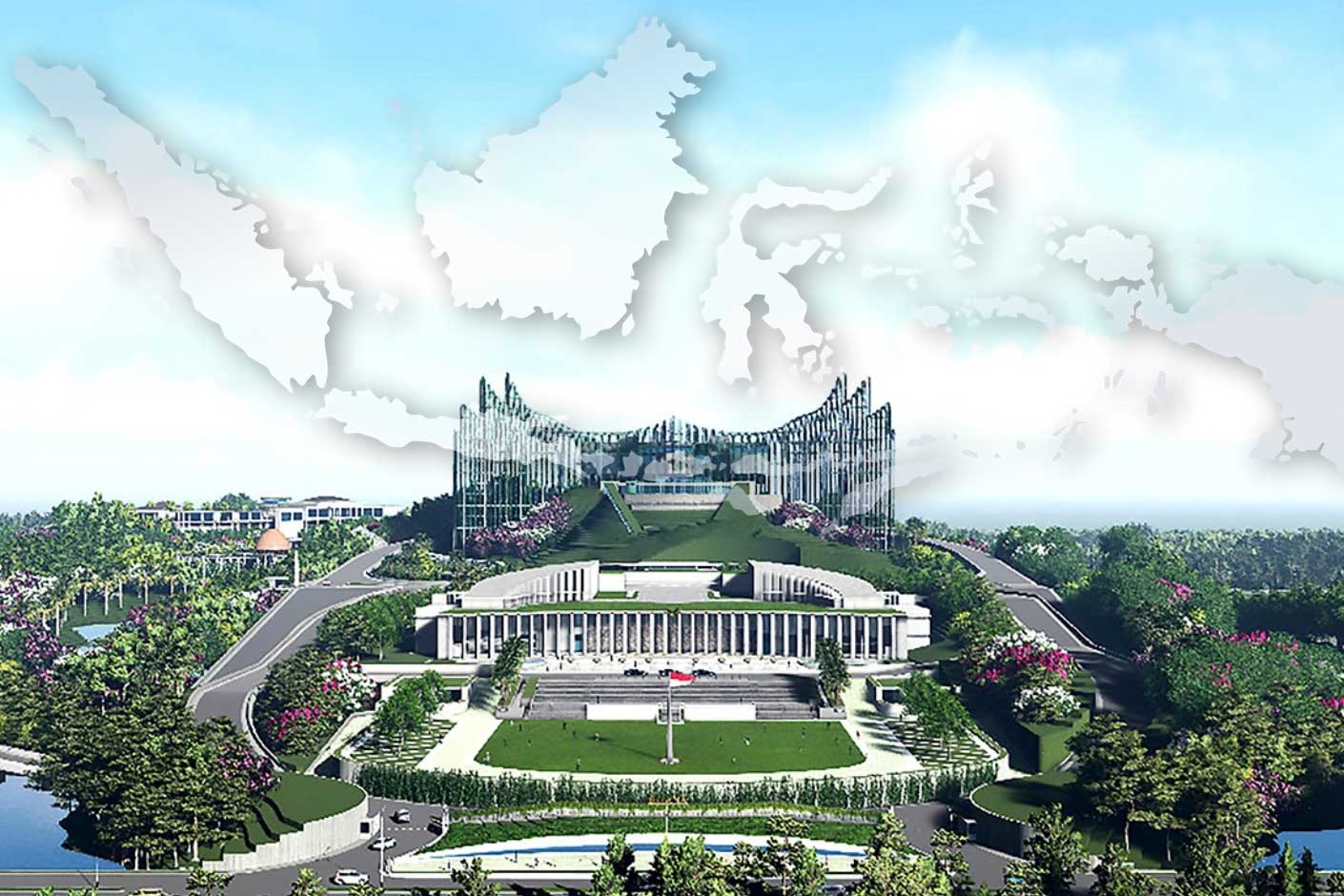Geopolitical Strategy:
Building the New Capital is Not a Rush Job

By: Prof. Dr. Drs. Ermaya Suradinata, S.H., M.H., M.Si
Editor: Dhania Puspa Purbasari
Dr. Dino Patti Djalal, M.A., who also served as Indonesia’s Deputy Foreign Minister (2014), conveyed three guidelines regarding the New Capital in a widely circulated video. They are:
1. The construction of the New Capital (should not be tied to Indonesia’s political cycle) does not need to be completed before the government transition in October 2024;
2. There is no need to make the New Capital an international city. We are building the New Capital solely for the Indonesian nation, not for the international community; and
3. Build the New Capital with our own capabilities and resources.
These guidelines become relevant as the relocation of Indonesia’s capital from DKI Jakarta to Nusantara, located in North Penajam Paser, East Kalimantan, reflects significant geopolitical transformation within the country. The relocation of the capital to East Kalimantan should be seen as a strategic decision, as it has long-term impacts on geopolitics and geostrategy.
With well-planned strategies and strong commitment, Indonesia has a great opportunity to realize an efficient and modern capital, which will be a symbol of the nation’s sovereignty and progress in the next 15 to 20 years. It becomes clear that the relocation of Indonesia’s capital is not a decision to be made hastily, especially when considered from a geopolitical and geostrategic perspective.
Therefore, the construction of the New Capital should not be rushed to complete before the government transition in October 2024. Building a new city requires careful planning and execution to ensure its sustainability and effectiveness as the new center of government.
Forcing the completion of this large project in a short time can result in suboptimal infrastructure quality and neglect important aspects such as environmental, social, and economic factors. Therefore, it is essential to focus on quality and long-term sustainability rather than strict deadlines.
Moreover, the new government under Prabowo Subianto, which will take power starting in October 2024, has indicated a different strategy for building the New Capital. At the Qatar Economic Forum in Doha on May 15, 2024, Prabowo emphasized that the New Capital is a political project that should be funded by domestic resources. This approach shows a commitment to increasing financial independence and reducing reliance on foreign investments, which often come with various conditions and interests that can affect national sovereignty.
The notion of self-reliance was also instilled in this nation by Bung Karno. Bung Karno introduced the Trisakti concept, which encompasses three essential aspects: political sovereignty, economic independence, and cultural identity. This means that the nation’s political sovereignty has full authority in managing internal and external affairs, as well as maintaining territorial integrity and national stability.
Economic independence, the second aspect of Trisakti, emphasizes the importance of economic self-reliance. Bung Karno wanted Indonesia not to depend on economic aid or intervention from other countries. This independence is achieved through the development of domestic industries, increased agricultural production, and optimal management of natural resources.
By being self-reliant, Indonesia is expected to meet domestic needs, improve the people’s welfare, and have a strong bargaining position in international trade. This also means minimizing dependency on imports and increasing exports of high-value local products.
Therefore, with the concept of self-reliance, the funds available from the state budget for building the New Capital should be allocated carefully, considering the many other development needs in sectors such as infrastructure, education, and health. Taking this into account, the construction of the New Capital is expected to take a considerable amount of time. Hence, in this context, the strategy of the new government under Prabowo Subianto to fund the New Capital project with domestic resources also opens up opportunities to empower local industries and create jobs.
This will act as a stimulus for the domestic economy while strengthening national capacity in managing large projects. Additionally, by maximizing local potential, this project can become a symbol of Indonesia’s independence and sovereignty. In the long run, although it may take longer, this approach can result in a more sustainable New Capital that is deeply rooted in the nation’s own strengths.
The construction of the New Capital should be carried out utilizing the capabilities and resources that this nation possesses. Relying on local resources will not only enhance national independence but also encourage the development of domestic industries, create jobs, and spur local technological innovation. Thus, there will be no intervention from foreign countries, including geopolitical intervention. Geopolitical intervention by foreign countries is a serious challenge faced by many nations, including Indonesia. Foreign countries use various strategies, from diplomatic pressure to economic intervention, to achieve their goals in the target countries. Such intervention often involves hidden political agendas aimed at influencing the political, economic, or security decisions of the target nation.
Therefore, it is crucial for Indonesia to strengthen the Trisakti self-reliance concept mandated by Bung Karno and implement smart foreign policies while maintaining its sovereignty against external pressures. This can be achieved through close regional cooperation, where Indonesia can build a consensus that supports its sovereignty and maintains stability in Southeast Asia.
This nation must be vigilant against the risk of geopolitical intervention from foreign countries. Such interventions can come in various forms, from diplomatic pressure to economic influence through large-scale investments in strategic projects. Simultaneously, the government must ensure that decisions related to the construction of the New Capital are made autonomously and free from external pressure.
Prof. Dr. Drs. Ermaya Suradinata, S.H., M.H., M.Si. was the Governor of Lemhannas RI (2001-2005) and the Director General of Social Politics at the Ministry of Home Affairs RI (1998-2000). He is currently the Chairman of the Advisory Board of the Center for Geopolitics & Geostrategy Studies Indonesia (CGSI), and the Head of the Expert Team of the Pancasila Ideology Development Agency (BPIP) RI.
